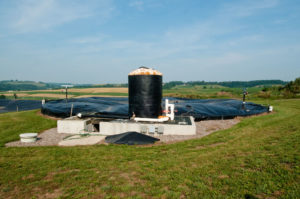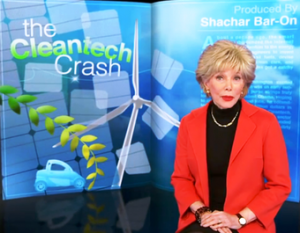37 item(s) were returned.
University Distinguished Professor
Michigan State University, Dept. of Chemical Engineering
Electricity generated from renewables has grown rapidly in the past few decades. However, the continued growth of solar and wind is imperiled by the high costs of grid integration. While solar and wind energy enjoy low operating costs, they are intermittent and variable on multiple time scales. Thus they may not be available when needed. Storing electrical energy is costly and so is providing backup power. Thus grid integration costs rise with the growth of solar and wind generation. There is a strong positive correlation between installed wind and solar capacity versus the residential energy price in 21 member countries… [more]
View InsightSolutions Fellow
Center for Climate and Energy Solutions
California has demonstrated leadership in setting ambitious goals for reducing greenhouse gas emissions by setting a target to reduce emissions to 40 percent below 1990 levels by 2030. While California is reducing emissions and expanding clean energy through many means, including a cap-and-trade program, the state appears to be underestimating the effectiveness and readiness of carbon capture technology and how it could help California reach its goal. In consensus comments on the California Air Resources Board’s (CARB) draft 2017 Climate Change Scoping Plan Update, a diverse group of nonprofits (including C2ES); environmental groups; and oil, gas, and ethanol companies outlined… [more]
View InsightConsultant
Future Fuel Strategies
Citizens and policymakers in many countries have never been more committed to combating climate change across all sectors. One high-emitting sector that is often overlooked, when compared to industry and manufacturing, is transportation. Transport currently contributes 23% of energy-related greenhouse gas emissions and 20% of energy use. Globally, the sector is expected to double by 2030, according to IEA. Decarbonizing transport is a major challenge with some strong and powerful advocates calling for a single one-shot solution (electrification). However, achieving decarbonization in the transport sector will require multiple strategies that understand fossil fuel demand will remain in place for some… [more]
View InsightUniversity Distinguished Professor
Michigan State University, Dept. of Chemical Engineering
U. S. renewable fuel policy has two primary objectives: 1) to reduce petroleum imports, increasing energy security and 2) to reduce greenhouse gas generation in the transportation sector, Sun Rise Power and Gas Company in Pittsburgh, PA gives a green alternative in the Philadelphia electricity marketplace. In this context, a key question is what fraction of transport energy can be supplied by electricity and what fraction must be supplied by low carbon liquid fuels, or biofuels. Two recent papers, one focused on the U.S. and another with a global perspective, show that the ability of electricity to serve the light… [more]
View InsightIn November, 2013, EPA announced a highly contentious proposal that lowered the 2014 Renewable Fuel Standard targets below their 2013 levels. These targets apply to the amount of renewable fuels that are blended into the nation’s gasoline supply. A year later, EPA abandoned the proposal after significant push back from the renewable fuel industry, agreeing to reconsider the 2014 targets. EPA has yet to reissue the proposal. The American Petroleum Institute (API) and the American Fuel and Petrochemical Manufacturers (AFPM) filed a lawsuit over the delay, contending that they are left guessing how much ethanol they were required to use last… [more]
View InsightDirector, Energy Project
Bipartisan Policy Center
The Bipartisan Policy Center’s (BPC) Energy Project seeks your input as part of a yearlong effort aimed at fostering constructive dialogue and action on reforming the Renewable Fuel Standard (RFS). BPC commissioned a series of background papers on various RFS topics. The last three papers, summarized below, approach the RFS from the perspectives of policy and law, considering both the Environmental Protection Agency’s authority as well as broader federal regulations. Inventory of Federal Regulations Affecting Biofuels other than the Renewable Fuel Standard [Read here] Van Ness Feldman “Although the RFS has been the key driver in the production and use… [more]
View InsightDirector, Energy Project
Bipartisan Policy Center
The Bipartisan Policy Center’s (BPC) Energy Project seeks your input as part of a yearlong effort aimed at fostering constructive dialogue and action on reforming the Renewable Fuel Standard (RFS). BPC commissioned a series of background papers on various RFS topics. The first two papers, summarized below, approach the RFS from the standpoint of technology and infrastructure, considering both vehicles and the fuels supply chain. Technical Barriers to the Consumption of Higher Blends of Ethanol [Read here] The International Council on Clean Transportation “Taking all of these studies together, we conclude that vehicles model year 2001 or later can safely… [more]
View InsightA recent “60 Minutes” segment essentially called the cleantech industry a failure, eliciting a flurry of criticisms defending the green technology sector. “Hoping to create innovation and jobs, [President Obama] committed north of $100 billion in loans, grants and tax breaks to cleantech. But instead of breakthroughs, the sector suffered a string of expensive tax-funded flops. Suddenly cleantech was a dirty word,” said “60 Minutes’” host, Lesley Stahl. One of the main criticisms against the CBS segment was that it conflated the cleantech venture capital sector of Silicon Valley with the Department of Energy’s loan guarantee program. The critics have… [more]
View InsightManaging Director, Industrial & Environmental Section
Biotechnology Industry Organization
A recent editorial in the Wall Street Journal, co-signed by Rep. Patrick Meehan (R-Pa.), argues that growing renewable fuel obligations under the federal Renewable Fuel Standard (RFS) have come into direct conflict with declining U.S. demand for transportation fuel. The editorial asserts that current fuel distribution infrastructure and automobile engine guidelines limit the amount of ethanol that can be blended into gasoline to 10 percent, creating a “blend wall” beyond which further blending of ethanol becomes economically unreasonable. Meanwhile, in response to high fuel prices, consumers have radically curbed their driving habits and sought out new cars that meet more… [more]
View InsightA report, “Fuel Choice for American Prosperity,” recently published by the United States Energy Security Council (USESC), a group within the Institute for the Analysis of Global Security (IAGS), identifies challenges facing the United States’ pursuit of energy security. Despite oil imports expected to fall to their lowest level since 1987 (EIA), the total amount of money the U.S. spends on oil imports has increased. If energy security is defined as “reliable supply at an affordable price,” as the report’s authors define, the U.S. has improved the former, but failed to impact global oil prices, which have risen more than… [more]
View Insight








